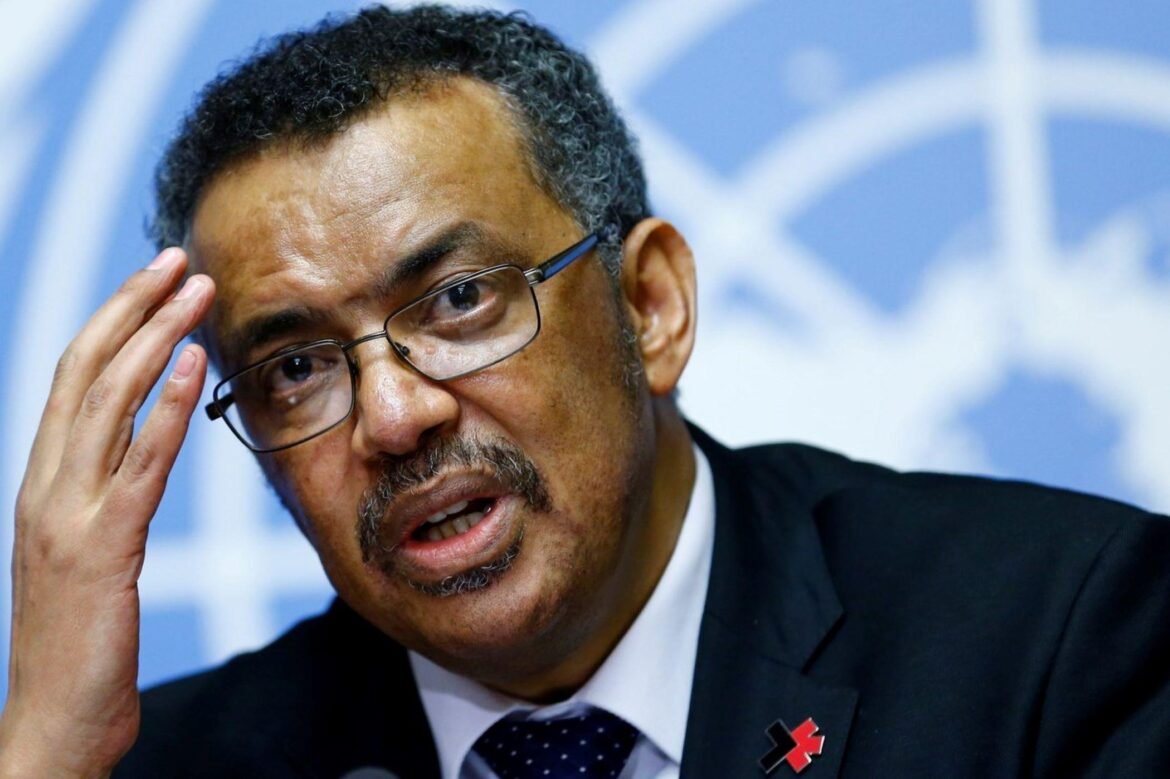The World Health Organisation (WHO) says it has continued to see a decline in COVID-19 cases globally, with a 17 per cent drop compared with last week.
The WHO Director-General, Dr. Tedros Ghebreyesus, in a speech posted on its website on Friday, stated that the number of deaths had also reduced.
Ghebreyesus, speaking at a news conference at WHO headquarters in Geneva, said, “this is the fourth week of declining cases.
“The number of deaths also fell for the second week in a row, with 88,000 new deaths reported last week – a terrible number, but a 10 per cent decline from the previous week.
“These declines appear to be due to countries implementing public health measures more stringently.’
“But remember, we have been here before. Now is not the time to relax measures or for any of us to let down our guard.
“Every life that is lost now is all the more tragic as vaccines are now being rolled out; the virus continues to circulate widely and new variants are emerging.
“This is not an unexpected development, but it gives a new urgency to our global efforts to bring this pandemic under control.
“Every time the virus mutates, it has the potential to blunt the effectiveness of our vaccines, medicines and tests,” he said.
According to him, there are three major threats to the UN-led international equitable vaccine initiative, COVAX, that requires urgent attention amidst news of decline in cases and deaths of COVID-19.
Ghebreyesus, however, drew attention to a 27-billion-dollar financing gap in the ACT Accelerator, which supported the development and equitable distribution of coronavirus tests, treatments and vaccines globally.
“The longer this gap goes unmet, the harder it becomes to understand why, given this is a tiny fraction of the trillions of dollars that have been mobilised for stimulus packages in G20 countries,’’ he said.
Secondly, noting some bilateral deals, he called on all States “to respect COVAX contracts and not compete with them”.
And third, he underscored the need for “an urgent scale-up in manufacturing to increase the volume of vaccines” with “innovative partnerships” to include tech transfer, licensing and “other mechanisms to address production bottlenecks”.
Meanwhile, as Africa marked one year since its first COVID-19 case on Sunday, Feb. 14, WHO revealed that the continent had witnessed a 40 per cent surge in COVID -19 fatalities – pushing the death toll there toward 100,000.
“The increasing deaths from COVID-19 we are seeing are tragic, but are also disturbing warning signs that health workers are overstretched.
“There are also warning that health systems in Africa are dangerously overstretched,” WHO Regional Director for Africa Matshidiso Moeti, said in a statement posted on WHO Regional office for Africa website.
At the same time, in the last 28 days, over 22,300 deaths were reported on the continent – a 3.7 per cent fatality rise – compared with nearly 16,000 deaths in the previous 28 days, which reflected a 2.4 per cent increase, according to WHO.
This mortality spike came as Africa’s second wave which began in October, seems to have peaked on Jan. 7, haven spread significantly faster and proven far more lethal.
WHO maintained that second wave cases surged far beyond the peak experienced in the first wave and health facilities had become overwhelmed.
“This grim milestone must refocus everyone on stamping out the virus,” Moeti said.
At the same time, new contagious COVID-19 strains are spreading rapidly as Africa gears up for its largest-ever vaccination drive.
The variant known as B1.351, which was first identified in South Africa, has now been detected in eight African States, while the mutation initially identified in the United Kingdom, called B1.1.7, has been found in six countries on the continent.
“This is obviously very disappointing news, but the situation is very dynamic.
“While a vaccine that protects against all forms of COVID-19 is our biggest hope, preventing severe cases which overwhelm hospitals is crucial,” Moeti said.
This week, South Africa said it would pause the roll-out of the Oxford/AstraZeneca vaccine, citing a study indicating that it was less effective in battling the country’s dominant B1.351 strain.
WHO says there was an “urgent need” for a coordinated approach to variant surveillance and more evaluation to help decipher the potential impact they might have on vaccine effectiveness.
“The pandemic is far from over and vaccines are just one crucial tool in our fight against the virus.
“We must boost investments and support for our health workers and health systems by sticking to face mask wearing, regular hand cleaning and safe social distancing,” Moeti added.
(NAN)








